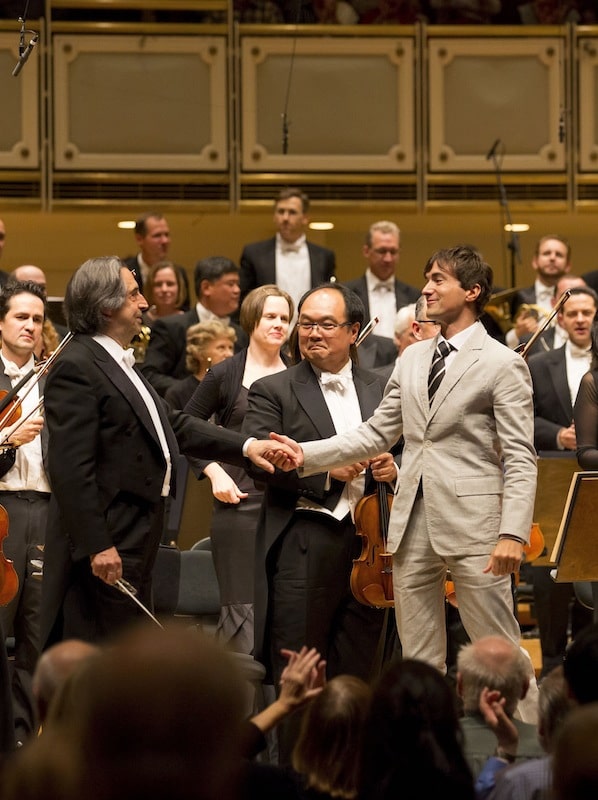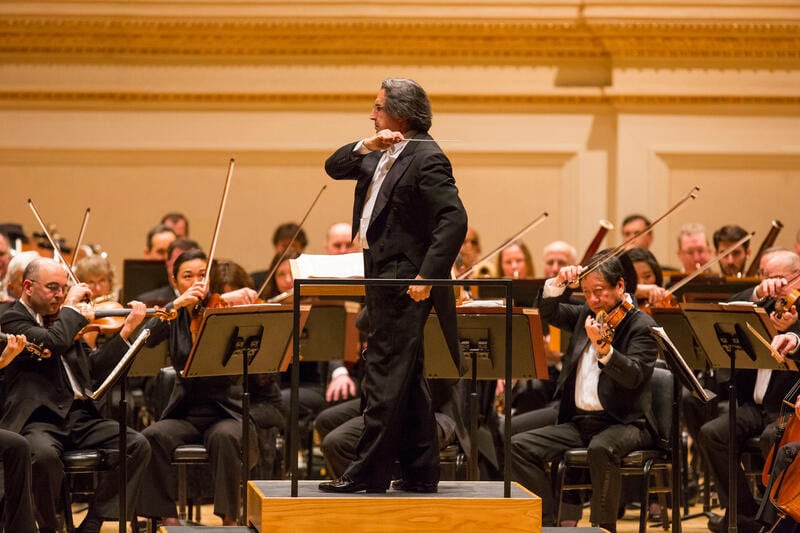Just in: Contemporary music tops US album sales
mainFor the first time since Henryk Mikolai Gorecki’s freak hit quarter of a century ago, music by a living, serious composer was the best-selling album in the USA last week, according to the unarguable Nielsen Soundscan statistics.
Mason Bates’ Anthology of Fantastic Zoology, played by the Chicago Symphony Orchestra with Riccardo Muti, narrowly beat Decca’s Benedictines of Mary to the top spot.
Muti programmed the work in the CSO’s closing concert of the season.
That’s the good news.
The bad news is that neither of the top two albums sold as many as 200 copies in the entire USA.
Only four classical albums topped 100 weekly sales.
Business has never been worse.

photo (c) Todd Rosenberg





Are figures available for the UK?
Then surely the real headline is CD tops chart despite selling under 200 copies. And it should be taken not as commentary on the music, but on the fact that at least as far as classical music is concerned, the recording industry is done and dusted. I came into this world during the Legge/Culshaw golden age of classical recording. All that music, my earliest memories, my first love. So sad to see it disappear but really, it’s time to move on. Live is all that’s left now and that won’t itself survive without big change.
It’s not that there aren’t substantial numbers of people interested in classical recordings. Classical recordings, even of obscure pieces and composers, are still sought out and listened to.
The problem is that they are sought out and listened to free, online.
Well at least I now know about the Mason Bates album, of which I was previously and inexplicably unaware.
Ir’s so all been done before…..
Including you.
Can someone explain, please. Does this figure (200 CDs) refer to the sales over the course of an week, month or year?
Is there an award/ranking for most downloads? Wouldn’t that be more apropo to the reality of how people procure music?
Salaam
@ItsJTime,
Downloads are included in this figure.
And to answer your question, no, downloads wouldn’t be a more appropriate way of analysing music consumption, not in the classical space. The classical music market is still largely physical, not digital.
One thing that I see far too little of in the classical world, especially when it comes to new music, is touring in support of a new album, which is a common practice in the pop world (and Bartoli). Will the CSO and Muti now take the Bates piece on some of their many tours, which would likely spur additional sales?
Not very likely. If I am not mistaken, the newest work this orchestra has toured was written by Hindemith.
The notion that performing organizations must perform newly wrought works of art in order to prove themselves “relevant” is a false paradigm, and the proof of this is the continued interest in Shakespeare in theatre and film. To cite another example, in celebration of the fall of the Berlin Wall, Beethoven’s Ninth Symphony was performed for an international audience. Great works of art continue to be relevant, not because of their market appeal, but because their significance transcends the ordinary, and because the challenge of successfully performing such works is formidable, even for the best of performers.
Many of us are streaming these albums. Sales aren’t indicative of whether pieces are being heard.
Rob, I believe the US charts do include streaming (and track download) data within the sales figures, with a formula which calculates an “album equivalent” from streams and individual track downloads (cleary an album download = an album sale).
These sales figures / charts are, then, indicative of whether a piece is being heard.
At HD Classics Online, where Bates’ album has only recently appeared, it has been heard already 446 times
Luis Tinoco´s “Fantastic Tales” with texts by Terry Jones is a work of genius. If the wider public only knew about this incredibly funny and brilliant work, it would become a bestseller in no time at all. It would also be a great introduction to contemporary music for children.
It is recorded by the Orquesta de Extremadura, conducted by Jesús Amigo, with the texts in Spanish. A great recording, by the way.
Bates came to Rio de Janeiro earlier this month. His concert with Brazilian Symphony Orchestra and conductor Lee Mills, featuring ‘Liquid interface’ and ‘Mothership’, was well received. I was there at Cidade das Artes. The “water/see” programme included Britten’s Four Sea Interludes from ‘Peter Grimes’ and Debussy’s ‘La Mer’.
This answers the question do we need another Beethoven (or whoever) cycle. The answer is no.